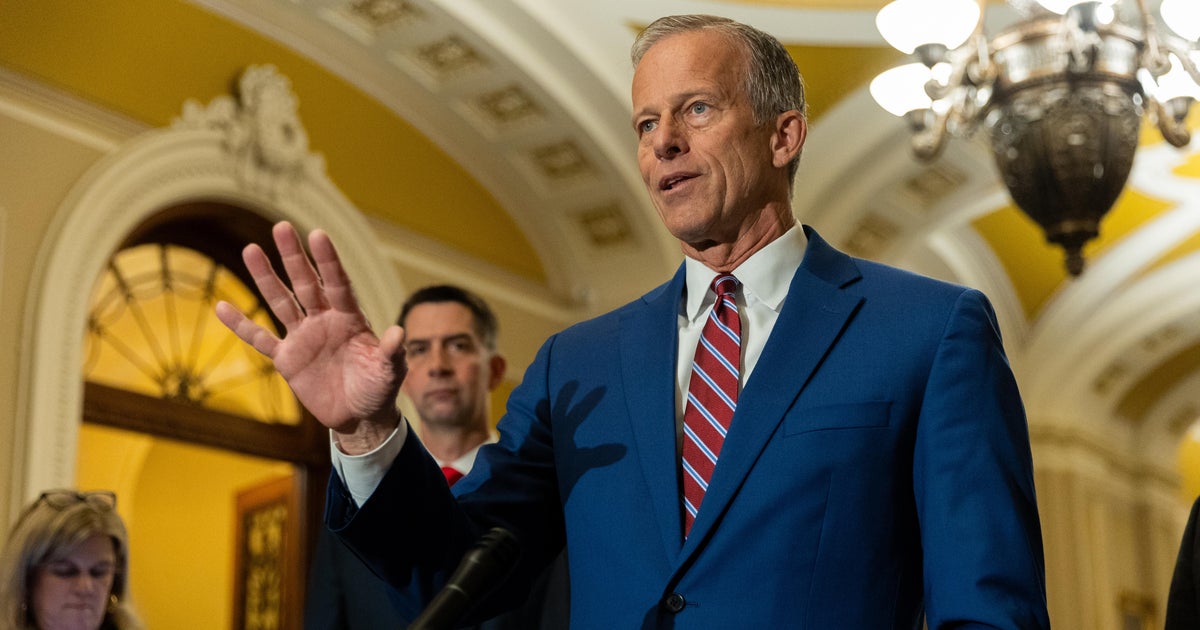Washington – The Senate presented a draft law regulating encryption on Monday evening after the democratic opposition It connected an initial attempt To advance the measure earlier this month amid concern about the relations between the digital asset industry and the Trump family.
The first legislation of its kind, known as the Genius Law, will create an organizational framework for Stablecoins-a type of cryptocurrency associated with the value of the original like the US dollar. After the procedure was submitted by the Senate Banking Committee with the support of the two parties in March, the leadership of the Republican Party of the Senate brought the procedure for the first time to the floor earlier this month. However, this measure has lost democratic support in the overlapping weeks amid concerns about President Trump and his commercial family projects involved in an encrypted currency.
This procedure is presented forward in a 66-32 vote after obtaining support from some democratic acceptance.
Monday’s vote was to limit the debate on the bill, allowing the Senate to move forward to the final traffic.
The majority leader of the Senate, John Thun, criticized the Democrats for preventing him from advancing earlier this month, saying on Monday, “The draft law reflects this consensus on the two parties on this issue, and it had an open and partisan operation from the beginning.”
Thnee, a Republican in southern Dakota, argued that Democrats in the Senate “chose to prevent this legislation” earlier this month.
Nathan Bosner/Anadolu via Getty Images
Since the failed vote earlier this month, negotiators have returned to the table. Before the procedural vote on Monday, this measure saw support from at least one Democrat, as Senator Mark Warner of Virginia called for this measure, describing him as a “useful step forward”, although he added that he was “not perfect.”
“The Steplkwin market has reached nearly 250 billion dollars, and the United States cannot bear the costs of standing on the margin,” Warner said in a statement. “We need clear rules for the road to protect consumers, defend national security and support responsible innovation.”
However, Warner referred to the concerns that he said was common to many members of the Senate Trump family “Using encryption techniques to evade supervision, hide shaded financial transactions, and personal benefit at the expense of ordinary Americans,” after it was announced earlier this month that a company backed by Abu Dhabi will invest billions of dollars in the Trump Cheapper Company, the global financial freedom.
Warner said that the members of the Senate “face the need to highlight these violations,” but he said, “We cannot allow this corruption to blindness on the broader reality: Blockchain technology here to survive.”
Senator Elizabeth Warren of Massachusetts, the largest democracy in the Senate Banking Committee, was among the leading voices that defend the addition of anti -corruption reforms to legislation. Warren identified a handful of issues with the bill, saying that he endangers consumers and enables corruption. In a speech on Monday in the Senate Hall, Warren said her fears were not addressed and urged her colleagues to vote against the updated version.
“While the strong Stablecoin Bill is the best possible result, this weak bill is worse than the lack of a bill at all,” Warren said. “The draft law that is useful to oversee the Stablecoin market is worth the age. A bill that wins the Stablecoin market, with facilitating the president’s corruption, undermining national security, financial stability, and consumer protection worse than the lack of an invoice at all.”
This procedure fell to 60 votes necessary to move forward earlier this month, with all Democrats in the Senate and two Republicans – SNS. Rand Paul of Kentucky and Josh Hawley from Missouri – opposition. Paul has reservations about excessive organization, while Hawly voted against the draft law partially because it does not prevent major technology companies from creating their Stablecoins.
Senator Bell Hajari from Tennessee, who sponsored the legislation, Manage On CNBC’s “Squawk Box” on Monday. He explained that the lack of the organizational framework, which will be provided by the bill, makes uncertainty – and leads to an innovative technology movement abroad. The Republicans in Tennessee urged “this will be reconciled”, while arguing that the bill has strong support from the two parties.
“We have a wide political agreement, the Democrats and the Republicans,” said Haji. “The question is, can we overcome partisan policy and allow us to victory?”


